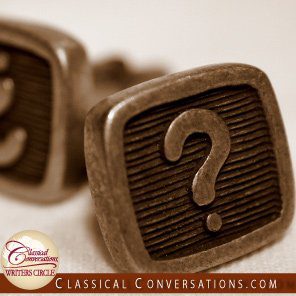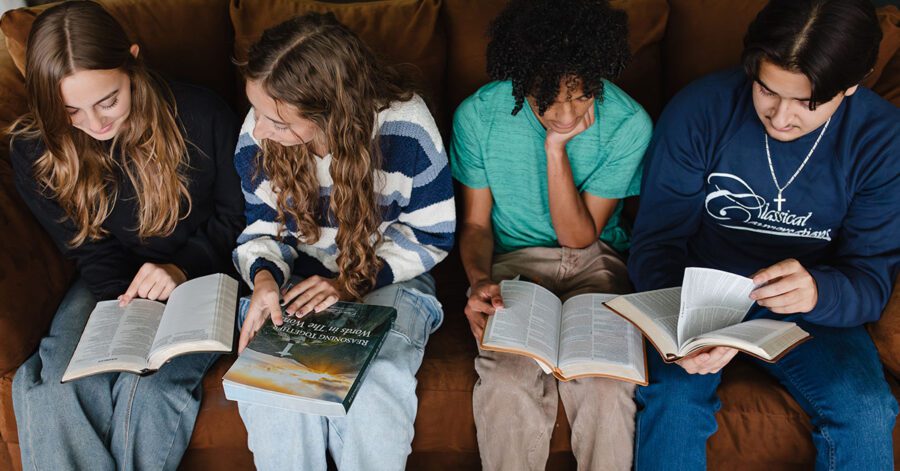May I ask you a question? As a mom, I am good at that:
“Are you up yet?”
“Do you need some help?”
“Why did you leave that here?”
“Is your throat sore?”
“When will you be back?”
“Do you call that clean?”
As a homeschool mom of two for more than a dozen years, I have discovered that questions have immense power. Questions can identify the most important concept under discussion. Questions can guide a student as he processes a new idea. Questions can propel a student towards a new thought or application. As I have learned to ask better questions, my own students have become more able learners. The power of a good question, aptly posed, is valuable at every stage of the trivium.
When my girls were little, I discovered that good questions helped them focus. Have you noticed that preschoolers enjoy telling stories? My girls could derail a lesson plan faster than I could draw a deep breath some days. However, if I asked them questions about what we were learning, they got to “tell me stuff” and stay on topic! When we began to work on classical memory work, a good question was the prompt they needed to remember what they had learned. A good question helped them to recall the names, dates, places, and vocabulary that formed the strong foundation of knowledge they were amassing. They appreciated the questions then because the questions reminded them of what they knew.
As the girls grew, my questions changed. The queries I posed were often designed to throw them off balance or to challenge them think about something more deeply than they had previously. My questions forced them to make associations we had not explicitly discussed; they had to put information together in new ways. Sometimes my pointed questions were simply to illustrate to my student that she did know the answer, she just did not realize it yet! Oftentimes, my questions were not well received, initially. It can be uncomfortable to have your status quo challenged! However, the girls found it increasingly exhilarating to discover a new depth of understanding in their studies. The light bulb moments were a joy for all of us as they began to understand the “whys” and “hows” of history, science, and literature. They appreciated the questions then because they revealed new depths of understanding.
Now, as I shepherd another daughter through high school, my questions have a new purpose. My questions are more open-ended; I want to know what my student is thinking, what fresh insight the years of classical education have incubated. I want to watch another thinker apply truth to new subjects or make that leap to a totally new idea. My daughters appreciate the questions now because they provide freedom. Wisdom is found, at this stage, in applying the understanding of what has been learned. How wonderful to see my beautiful girls find the integrity in God’s universe!
Such is the power of a question.




